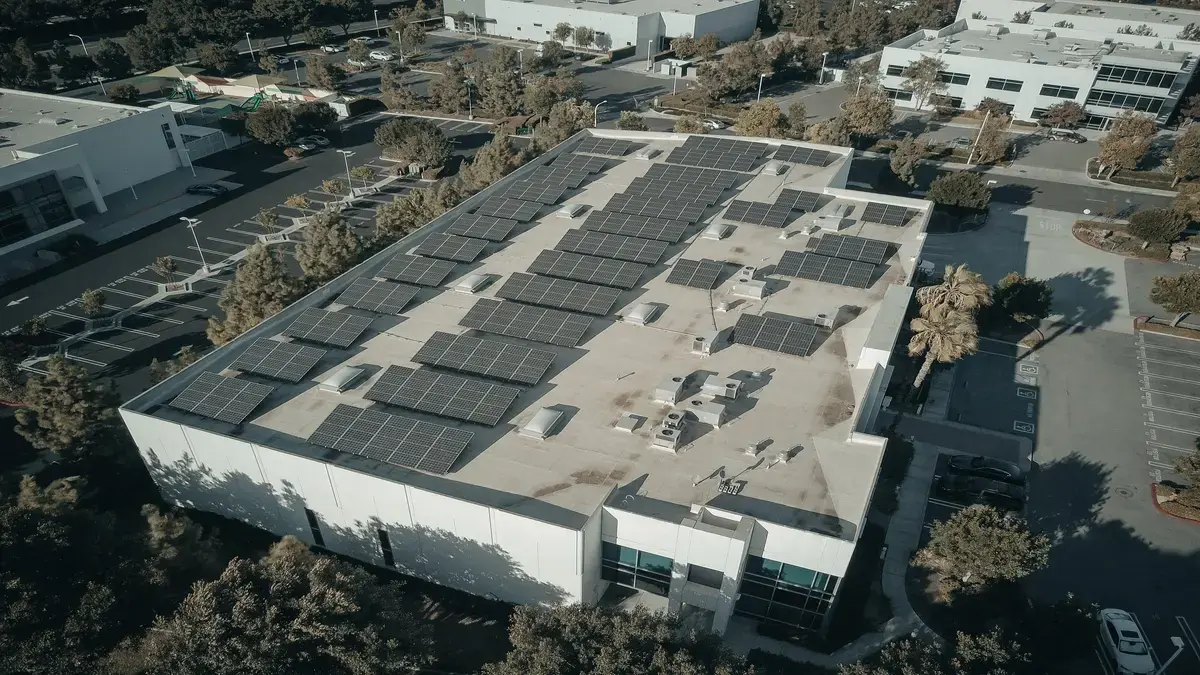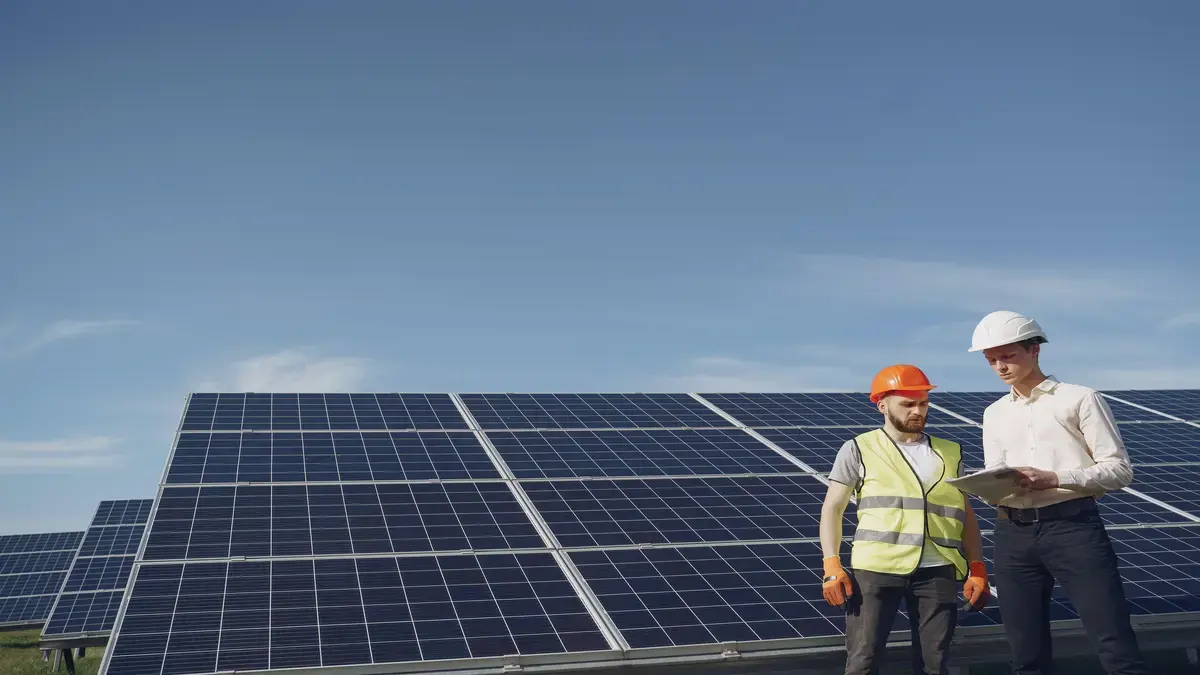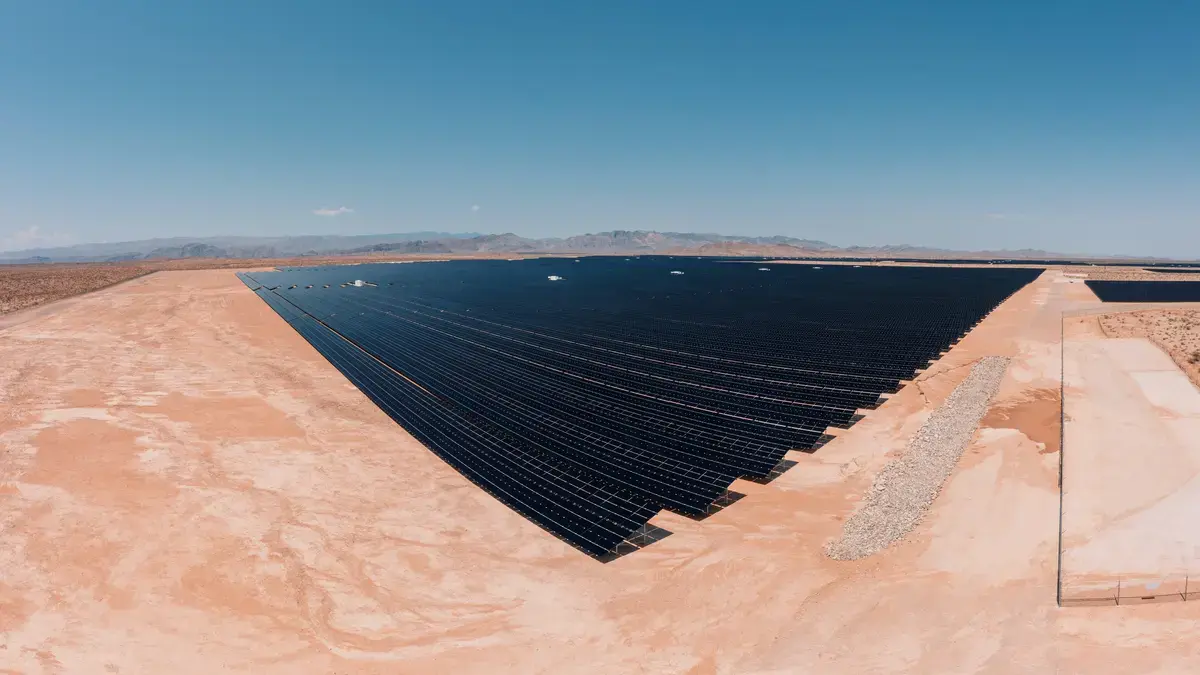Harnessing Solar Power: The Ultimate Solution for Renewable Energy
Harnessing solar power is the ultimate solution for renewable energy. Solar power offers a sustainable and abundant source of energy that can be harnessed using photovoltaic cells and solar panels. The environmental benefits of solar power are immense, as it produces no greenhouse gas emissions and reduces reliance on non-renewable energy sources. Additionally, solar power is an affordable and accessible energy solution, making it a viable option for both residential and commercial use. By empowering communities with solar power, individuals and businesses can take control of their energy production, reduce their carbon footprint, and contribute to a greener and more sustainable future.
Key Takeway
- Solar power is a sustainable and renewable energy source
- Harnessing solar power reduces greenhouse gas emissions
- Solar panels are cost-effective and low-maintenance
- Solar energy can be easily integrated into homes and businesses
- Investing in solar power leads to long-term savings

Harnessing Solar Power
Solar power is a renewable and sustainable source of energy that is harnessed from the sun’s rays. It is an environmentally friendly alternative to traditional fossil fuels, and it has the potential to significantly reduce our reliance on non-renewable energy sources. In this article, we will explore the various methods of harnessing solar power and the benefits of utilizing this clean energy source.
Solar Power Technologies
There are several technologies that are used to harness solar power, including photovoltaic (PV) systems and solar thermal systems. PV systems convert sunlight directly into electricity using solar cells, while solar thermal systems use the sun’s heat to generate electricity or to heat water or air for residential, commercial, or industrial use.
Both of these technologies have their own advantages and applications. PV systems are commonly used for residential and commercial rooftop installations, while solar thermal systems are often used for large-scale power plants and water heating systems.
Advantages of Solar Power
One of the key advantages of solar power is its renewable nature. Unlike fossil fuels, which are finite and non-renewable, the sun’s energy is virtually limitless. This means that as long as the sun continues to shine, we will have access to an abundant source of energy.
Another advantage of solar power is its environmental benefits. Solar power systems produce no greenhouse gas emissions or air pollutants during operation, which helps to reduce the negative impact of energy production on the environment and public health.
Additionally, solar power can help to reduce electricity bills for homeowners and businesses. By generating their own electricity from the sun, individuals and organizations can lower their reliance on grid-supplied electricity and potentially save money on their energy costs.
Types of Solar Power Installations
There are several types of solar power installations that can be used to harness the sun’s energy for various purposes. These installations include rooftop solar panels, solar farms, and solar water heating systems.
Rooftop solar panels are a popular choice for residential and commercial buildings, as they can be easily installed on existing structures to generate electricity for on-site use. Solar farms, on the other hand, are large-scale installations that are used to generate electricity for the grid, often in rural areas with ample sunlight.
Solar water heating systems utilize the sun’s heat to warm water for residential, commercial, or industrial use. These systems can be an efficient and cost-effective way to reduce the energy consumption associated with heating water for various applications.
Benefits of Solar Power Installations
One of the main benefits of solar power installations is their long-term cost savings. While the initial investment in solar panels or solar thermal systems may be significant, the long-term savings on electricity bills can make these installations a financially attractive option for many homeowners and businesses.
Additionally, solar power installations can increase property value for homeowners and commercial property owners. Properties with solar panels or solar thermal systems are often seen as more desirable and can command higher prices in the real estate market.
Furthermore, solar power installations can create jobs and stimulate economic growth in the renewable energy sector. The installation, maintenance, and manufacturing of solar power systems can provide employment opportunities and contribute to the development of a green economy.
Future of Solar Power
The future of solar power looks promising, as advancements in technology and decreasing costs continue to make solar energy more accessible and affordable. As the demand for clean and sustainable energy sources grows, solar power is expected to play a significant role in meeting the world’s energy needs.
One of the key factors driving the growth of solar power is the declining cost of solar panels. Over the past decade, the cost of solar panels has decreased significantly, making solar power more competitive with traditional energy sources. This trend is expected to continue, further expanding the adoption of solar power worldwide.
Additionally, ongoing research and development efforts are focused on improving the efficiency and storage capabilities of solar power systems. These advancements could lead to even greater utilization of solar power and a more reliable integration of solar energy into the existing power grid.
Challenges and Opportunities
While solar power offers numerous benefits, there are also challenges that need to be addressed to fully realize its potential. One of the main challenges is the intermittent nature of solar energy, as the sun does not shine 24/7. This variability can pose challenges for grid integration and energy storage, but it also presents opportunities for innovation in energy storage technologies and grid management.
Another challenge is the need for supportive policies and incentives to encourage the widespread adoption of solar power. Government incentives, such as tax credits and rebates, can help to offset the initial costs of solar installations and make them more accessible to a broader range of consumers.
Despite these challenges, the opportunities presented by solar power are significant. By harnessing the power of the sun, we can reduce our reliance on fossil fuels, mitigate the impacts of climate change, and create a more sustainable and resilient energy infrastructure for future generations.
Solar Power and the Environment
Solar power plays a crucial role in mitigating the environmental impacts of energy production and consumption. By harnessing the sun’s energy, we can reduce our dependence on fossil fuels, which are a major contributor to air and water pollution, deforestation, and habitat destruction.
Furthermore, solar power can help to combat climate change by reducing greenhouse gas emissions and slowing the rate of global warming. As the world transitions to a low-carbon economy, solar power will be an essential component of the energy mix, helping to create a more sustainable and environmentally friendly future.
Solar power is a clean, renewable, and sustainable source of energy that has the potential to transform the way we power our world. By harnessing the sun’s energy, we can reduce our environmental impact, lower our energy costs, and create a more resilient and reliable energy infrastructure. As the demand for clean energy continues to grow, solar power will play a critical role in shaping the future of energy production and consumption.

The Environmental Benefits
Solar power is a clean and renewable energy source that offers numerous environmental benefits. By harnessing the power of the sun, we can reduce our reliance on fossil fuels and decrease harmful greenhouse gas emissions. In this article, we will explore the environmental advantages of solar power and its potential to mitigate climate change.
Reduced Greenhouse Gas Emissions
One of the most significant environmental benefits of solar power is its ability to reduce greenhouse gas emissions. Unlike traditional energy sources such as coal and natural gas, solar power generates electricity without producing carbon dioxide or other harmful pollutants. This means that widespread adoption of solar power could significantly decrease the amount of greenhouse gases being released into the atmosphere, helping to combat climate change.
Conservation of Natural Resources
Another important environmental benefit of solar power is its ability to conserve natural resources. Unlike fossil fuels, which are finite and non-renewable, the sun is an abundant and virtually limitless source of energy. By harnessing solar power, we can reduce our dependence on finite resources such as coal, oil, and natural gas, helping to preserve these valuable resources for future generations.
Improved Air Quality
The use of solar power also contributes to improved air quality. Traditional energy sources such as coal and natural gas release pollutants into the air, leading to smog, acid rain, and respiratory problems. By transitioning to solar power, we can reduce the emissions of harmful pollutants, leading to cleaner and healthier air for both humans and the environment.
Protection of Ecosystems
Furthermore, the adoption of solar power can help protect ecosystems and wildlife. The extraction and burning of fossil fuels often lead to habitat destruction, water pollution, and harm to wildlife. By embracing solar power, we can minimize these negative impacts and help safeguard natural habitats and the species that depend on them.
Climate Change Mitigation
Climate change is one of the most pressing environmental challenges of our time, and the widespread adoption of solar power can play a crucial role in mitigating its impacts. By reducing greenhouse gas emissions and decreasing our reliance on fossil fuels, solar power can help slow the pace of climate change and limit its detrimental effects on the planet.
The Role of Policy and Innovation
While the environmental benefits of solar power are clear, realizing its full potential will require continued policy support and technological innovation. Governments can play a crucial role in promoting the adoption of solar power through incentives, subsidies, and supportive regulations. Additionally, ongoing research and development efforts are essential for improving the efficiency and affordability of solar technologies.
Solar power offers a multitude of environmental benefits, from reducing greenhouse gas emissions to conserving natural resources and protecting ecosystems. By embracing solar power as a clean and renewable energy source, we can take significant strides towards a more sustainable and environmentally friendly future.

Affordable and Accessible Energy Solution
When it comes to finding an affordable and accessible energy solution, solar power is a top contender. With the increasing demand for renewable energy sources, solar power has become a popular choice for both residential and commercial applications. In this article, we will explore the benefits of solar power and how it can provide an affordable and accessible energy solution for everyone.
The Benefits of Solar Power
Solar power offers numerous benefits that make it an attractive option for those looking for an affordable and accessible energy solution. Here are some of the key advantages of solar power:
| Advantages of Solar Power |
|---|
| 1. Renewable and Sustainable |
| 2. Low Operating Costs |
| 3. Reduced Electricity Bills |
| 4. Low Maintenance |
| 5. Environmentally Friendly |
One of the most significant advantages of solar power is that it is a renewable and sustainable energy source. Unlike fossil fuels, which are finite and contribute to environmental pollution, solar power relies on the sun’s energy, which is abundant and freely available. This makes solar power an excellent long-term solution for meeting our energy needs.
In addition to being renewable, solar power also offers low operating costs. Once a solar power system is installed, the ongoing costs are minimal, especially when compared to traditional electricity sources. This can result in significant savings for homeowners and businesses, making solar power an affordable option for many.
Furthermore, investing in solar power can lead to reduced electricity bills. By generating their own electricity, individuals and businesses can decrease their reliance on the grid, resulting in lower monthly utility expenses. This can provide long-term financial benefits and help offset the initial investment in a solar power system.
Another advantage of solar power is its low maintenance requirements. Solar panels are durable and typically require minimal upkeep, reducing the ongoing costs associated with system maintenance. This makes solar power a hassle-free energy solution for those looking for a low-maintenance option.
Finally, it’s essential to highlight that solar power is environmentally friendly. By harnessing the sun’s energy, solar power systems produce clean electricity without emitting harmful pollutants. This can help reduce our carbon footprint and mitigate the impact of climate change, making solar power a sustainable choice for the planet.
Accessibility of Solar Power
As the demand for renewable energy continues to grow, the accessibility of solar power has also improved. Advances in technology and a growing market have made solar power more accessible to a broader range of consumers. Here are some key factors contributing to the accessibility of solar power:
-
- Government Incentives and Rebates
-
- Financial Assistance Programs
-
- Leasing and Financing Options
-
- Increased Availability of Solar Installers
Government incentives and rebates have played a significant role in making solar power more accessible to consumers. Many governments offer financial incentives to encourage the adoption of solar power, such as tax credits and rebates for installing solar panels. These incentives can help offset the initial cost of a solar power system, making it more affordable for homeowners and businesses.
Additionally, financial assistance programs, such as low-interest loans and grants, can further support the affordability of solar power. These programs can provide financial assistance to individuals and organizations looking to invest in solar power, making it easier to finance the upfront costs of a solar power system.
Leasing and financing options have also contributed to the accessibility of solar power. Many solar companies offer leasing programs that allow consumers to install solar panels with little to no upfront cost. This can make solar power accessible to those who may not have the financial means to purchase a system outright, providing a more flexible and affordable option.
Furthermore, the increased availability of solar installers has made it easier for consumers to access solar power solutions. With more qualified professionals in the market, individuals and businesses can find reputable installers to help them navigate the process of going solar, ensuring a smooth and efficient transition to renewable energy.
Opportunities for the Future
As technology continues to advance and the demand for renewable energy grows, the future looks bright for solar power. Continued innovation in solar technology, coupled with supportive government policies and financial incentives, will further enhance the affordability and accessibility of solar power solutions.
It’s essential for individuals and businesses to consider the long-term benefits of investing in solar power. While there may be upfront costs associated with installing a solar power system, the potential for long-term savings and environmental impact make it a compelling choice for those seeking an affordable and accessible energy solution.
In conclusion, solar power offers a range of benefits that make it an attractive and accessible energy solution for consumers. With its renewable nature, low operating costs, and potential for reduced electricity bills, solar power presents a compelling case for those looking to transition to a more sustainable energy source. As accessibility continues to improve through government incentives, financial assistance programs, and increased market availability, solar power is poised to play a significant role in our energy future.

Empowering Communities with Solar Power
Solar power has become a game-changer in the renewable energy industry, offering a sustainable and cost-effective solution for communities around the world. The use of solar power has the potential to empower communities by providing them with a reliable source of clean energy, reducing their dependence on traditional fossil fuels, and ultimately contributing to a more sustainable future.
The Benefits of Solar Power for Communities
When it comes to empowering communities, solar power offers a wide range of benefits that can make a significant impact on the lives of the people living in these areas. Let’s take a look at some of the key advantages of solar power for communities:
| Benefits | Description |
|---|---|
| Cost-Effective | Solar power can significantly reduce energy costs for communities, making it an affordable option for those with limited financial resources. |
| Reliable Energy Source | With ample sunlight available in many regions, solar power provides a reliable source of energy that can be harnessed to meet the needs of communities. |
| Environmental Benefits | By utilizing solar power, communities can reduce their carbon footprint and contribute to a cleaner and healthier environment. |
| Energy Independence | Solar power allows communities to become more self-reliant in meeting their energy needs, reducing their dependence on external energy sources. |
Empowering Communities through Solar Power Initiatives
There are various initiatives and programs aimed at empowering communities through the use of solar power. These initiatives focus on providing access to solar technology, promoting education and training, and fostering sustainable development within communities. By implementing these initiatives, communities can harness the power of solar energy to improve their quality of life and create a more sustainable future.
Community Solar Projects
Community solar projects are designed to provide access to solar power for communities that may not have the resources to install individual solar panels. These projects allow community members to subscribe to a shared solar array, enabling them to benefit from clean energy without the need for individual installations. Community solar projects can significantly reduce energy costs for participants and promote the widespread adoption of solar power within communities.
Solar Education and Training Programs
Education and training programs play a crucial role in empowering communities with solar power. By providing knowledge and skills related to solar technology, communities can develop the capacity to maintain and utilize solar systems effectively. These programs also create opportunities for job creation within the solar industry, contributing to economic empowerment and sustainable development.
Government Incentives and Support
Government incentives and support programs can play a significant role in promoting the adoption of solar power within communities. These initiatives may include financial incentives, tax credits, and regulatory policies that encourage the installation of solar systems. By leveraging government support, communities can overcome financial barriers and accelerate the transition to solar power.
Challenges and Opportunities
While solar power presents numerous opportunities for empowering communities, there are also challenges that need to be addressed to maximize its impact. Some of the key challenges and opportunities include:
| Challenges | Opportunities |
|---|---|
| Financial Barriers | Access to financing and funding opportunities can help communities overcome financial barriers and invest in solar power. |
| Technical Expertise | Training programs and knowledge sharing can build technical expertise within communities, enabling them to effectively utilize solar technology. |
| Policy and Regulation | Advocacy for supportive policies and regulations can create an enabling environment for the widespread adoption of solar power. |
| Infrastructure Development | Investment in infrastructure development can enhance the integration of solar power within communities, improving energy access and reliability. |
The Future of Solar Power in Empowering Communities
The future of solar power in empowering communities looks promising, with ongoing advancements in technology, increasing awareness of environmental issues, and growing support for renewable energy initiatives. As the cost of solar technology continues to decline and its efficiency improves, more communities will have the opportunity to harness the benefits of solar power.
Furthermore, the integration of solar power with energy storage solutions, such as batteries, presents new opportunities for communities to achieve energy independence and resilience. Energy storage technology allows communities to store excess solar energy for use during periods of low sunlight or power outages, enhancing the reliability of solar power systems.
Overall, solar power has the potential to revolutionize the way communities access and utilize energy, offering a sustainable and empowering solution for the challenges of the 21st century. By embracing solar power, communities can take control of their energy future, reduce their environmental impact, and create a more sustainable and resilient society.
Frequently asked questions
1. How does solar power work?
Solar power harnesses energy from the sun through photovoltaic cells, which convert sunlight into electricity.
2. What are the benefits of solar power?
- It’s a clean and sustainable energy source
- Reduces electricity bills
- Low maintenance
- Reduces carbon footprint
3. Can solar power work in cloudy weather?
Yes, solar panels can still generate electricity on cloudy days, although at a reduced rate compared to sunny days.
4. Is solar power expensive to install?
While the initial installation cost can be high, there are various incentives and rebates available to reduce the overall expense.
5. How long do solar panels last?
Solar panels can last around 25-30 years, and many manufacturers offer warranties for this duration.

Este artigo foi criado pela nossa avançada ferramenta de criação de conteúdo. Quer produzir conteúdos de alta qualidade semelhantes sem esforço? Adquira nossa ferramenta hoje mesmo no Automatik Blog.







